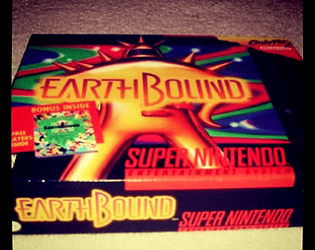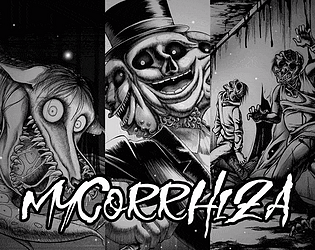Yep, you can find the licenses in the description
FulminisIctus
Creator of
Recent community posts
The rules should have the answer you're looking for!
1. Tag your submissions appropriately! If there is violence, substance abuse, mature themes or other such things, please list the types of content within it. Not respecting this rule will count against your submission in judging!
2. We respectfully request that all submissions be made without explicit sexual content. We won't complain if you change it after the jam.
3. Submissions containing depictions of suicide or self-harm will be disqualified and removed. Text, whether in-game or in the files of the submission, containing instructions, encouragement of, or statement of intent of suicide or self-harm are similarly disqualified.
So according to rule 1, as long as you tag it properly, it shouldn't be a problem.
This is an awesome article, thanks a lot for writing it! Especially performance requirements are something that I feel like people seem to dismiss sometimes. Like 32 bit not being supported in RenPy 8 anymore ;_;
There's by the way an interesting dilemma of optimizing disc space vs. performance requirements in Titanfall that might interest you. Since uncompressed audio labors the CPU less, they decided to go for uncompressed audio to make it playable on weaker hardware. On the other hand that meant that instead of 3-6 GB, the audio ended up taking up 35 GB, which was bad for people with small hard drives.
One note regarding audio that I'd like to add is that using opus instead of ogg decreases the audio file size by even more. The trade-off is that opus labors the CPU slightly more than ogg. The CPU labor increase is usually irrelevant for most VNs made in RenPy, though, unless the game already has features that labor the CPU a lot.
Thanks a lot for playing our game and for making the video! I believe your let's play is the first full-length one on YouTube. I'm really happy to hear that you enjoyed it!
Regarding the fourth drawer: Keep your eyes on our Twitter and devlogs! It will likely take a while until we're able to open it but I'm sure you'll enjoy it once we do!
Thanks for the comment! You can find lyric videos of some of the songs on my YouTube channel:
https://www.youtube.com/c/FulminisIctus/search?query=audio%20pack
Welcome to a world of distorted minds.
Mycorrhiza is a love letter to horror manga in the form of a visual novel. Some of our biggest inspirations include the works of Junji Ito and Masaaki Nakayama.
While the protagonist is trying to find a way back home, reality distorts and people’s morals start shifting in cruel and unexpected ways. A strange plant transforming animals, a strange comedy trend and a strange building trapping people. Each of the three arcs explores different terrors.
The game features a manga aesthetic (with CGs drawn by a manga artist), as well as a higher focus on dynamic audio.
Join us on our adventure into despair.
Try the demo over here: https://fulminisictus.itch.io/mycorrhiza
In the demo you'll be able to explore what lurks behind the first door. Doors two and three will follow over the course of development.

The first rule states "Your game must redesign some existing game idea" with the example being remaking Portal. So it does sound like you are forced. You could interpret it as redesigning the main game mechanics and not the actual game, though, since it only says that you should redesign an existing game idea, not an existing game. Can still be problematic but way less problematic than making an obvious copy of an IP. Even if you had to, since there's no price, you don't have anything to lose by submitting a game that doesn't follow the rules.
So yes, copying an IP is definitely problematic copyright wise. There are probably many nuances to this, though, and I doubt there's a lawyer here to properly answer that question.
I've been doing lots of research into PS1 audio for a while now and as such I know how difficult it can be to find good resources on the topic. There aren't any easy to follow guides out there (and it'll be a while longer until I'm at the point where I can make and release my own), so I thought I'd offer you a hub to share resources and questions regarding the PS1 sound system. I'm still far from an expert, of course, but I'll do my best. I've tried to give a few rough pointers below but for in depth info it'd be best to check out the sources or to let me know if you have any specific questions.
"The PS1 sound"
One question that came to me while writing this thread was "what's the trademark PS1 sound". Since the technical limitations started too loosen quite a bit more, that's a hard question to answer.
One option to get a PS1 sound would be using late 80s/90s synths presets. Composers seem to have used them to some degree. Check out this presentation of the Roland D-05 (a recreation of the Roland D-50 from the late 80s). Many presets definitely sound like something from a PS1 game in my opinion. Someone did mention, that the same also applies to Sega CD and Sega Saturn, though, so there's that.
Someone also mentioned to me that they connect the PS1's built in reverb to the classic PS1 sound. If you want give that a try you can check out the no frills reverb plugin:
https://github.com/BodbDearg/PlayStation1Vsts/releases
Resources
The three Net Yaroze (PS1 dev console) documentations are of course a really good official source for info on the console. The Library Reference and Startup Guide might not be too useful unless you want to make a homebrew PS1 game that's supposed to run on an actual PS1 system. The User Guide should help you out a lot, not just in regards to audio but also all things PS1.
| Net Yaroze - Startup Guide | http://www.psxdev.net/downloads/Net%20Yaroze%20Official%20-%20Startup%20Book.pdf |
| Net Yaroze - User Guide | http://www.psxdev.net/downloads/Net%20Yaroze%20Official%20-%20Startup%20Guide.pd.. |
| Net Yaroze - Library Reference | http://www.psxdev.net/downloads/Net%20Yaroze%20-%20Library%20Reference.pdf |
One could split the PS1's audio output types into two categories: streaming audio and "MIDI".
Because of the switch from cartridges to CD, developers had a lot more space to work with. And as such they could now more freely add streaming audio to their game. There were multiple types of streaming audio that were used: Redbook Audio, XA-ADPCM and PS1-ADPCM (there are also many alternative names for the last one like SPU-ADPCM, Sony-ADPCM and VAG-ADPCM). While Redbook Audio was uncompressed (and therefore higher in quality) and larger in size, ADPCM took up only a fourth of the size. XA-ADPCM, as opposed to PS1-ADPCM, was not sent to the 512kB big SPU-RAM (Sound Processing Unit RAM).
Like I mentioned, the PS1 also supported "MIDI". I wrote MIDI in quotation marks since technically the file format was SEQ, which was almost the same as MIDI, though. If you've looked through the Net Yaroze Guide already, then you might've seen them mention that the devs got a MIDI (SMF, Standard MIDI File) to SEQ converter with their developer console. The MIDI system usually consisted of three file types: SEQ, VAG and VAB. SEQs were pretty much just converted MIDIs while VAGs were instrument samples (short instrument recordings/syntheses) and VABs sound banks holding the instrument samples. I'm not aware of any preset sound banks that came with the system, meaning that there aren't necessarily any trademark instrument sounds that apply to all PS1 games. Note that skilled peeps did some great things using the PS1s "MIDI" system, making the tracks sound really non-MIDI. See Legend of Mana for example (they also had multiple people manning audio positions that weren't really that common for other PS1 games such as Sound Manipulator, Sound Programmer, Sound Engineer and Sound Editor and Square also usually used their own SEQ drivers, giving them more options on how to manipulate the sounds).
A portion of the below sources are really technically oriented and may cause headaches (they at least did in my case), be warned.
| Nocash PSX Specifications (Streaming Audio focused) | http://problemkaputt.de/psx-spx.htm |
| SPU - Sound Processing Unit - Information & Documentation | http://hitmen.c02.at/files/docs/psx/spu.txt |
| [Tutorial] Converting MIDI + Samples to SEQ + VAB | http://www.psxdev.net/forum/viewtopic.php?t=3500 |
| PlayStation (PS1) SEQ Format Overview | http://loveemu.hatenablog.com/entry/20060630/PSX_SEQ_Format |
| Sounds/SPU | http://www.psxdev.net/forum/viewforum.php?f=52 |
| PlayStation (PS1) Dragon Quest VII and IV Music Format (SEQQ) (Example of a custom SEQ format and driver) | https://loveemu.hatenablog.com/entry/20140103/ |
Let me know if you have any resources that should be added or if you have any specific questions that aren't answered in these resources!







